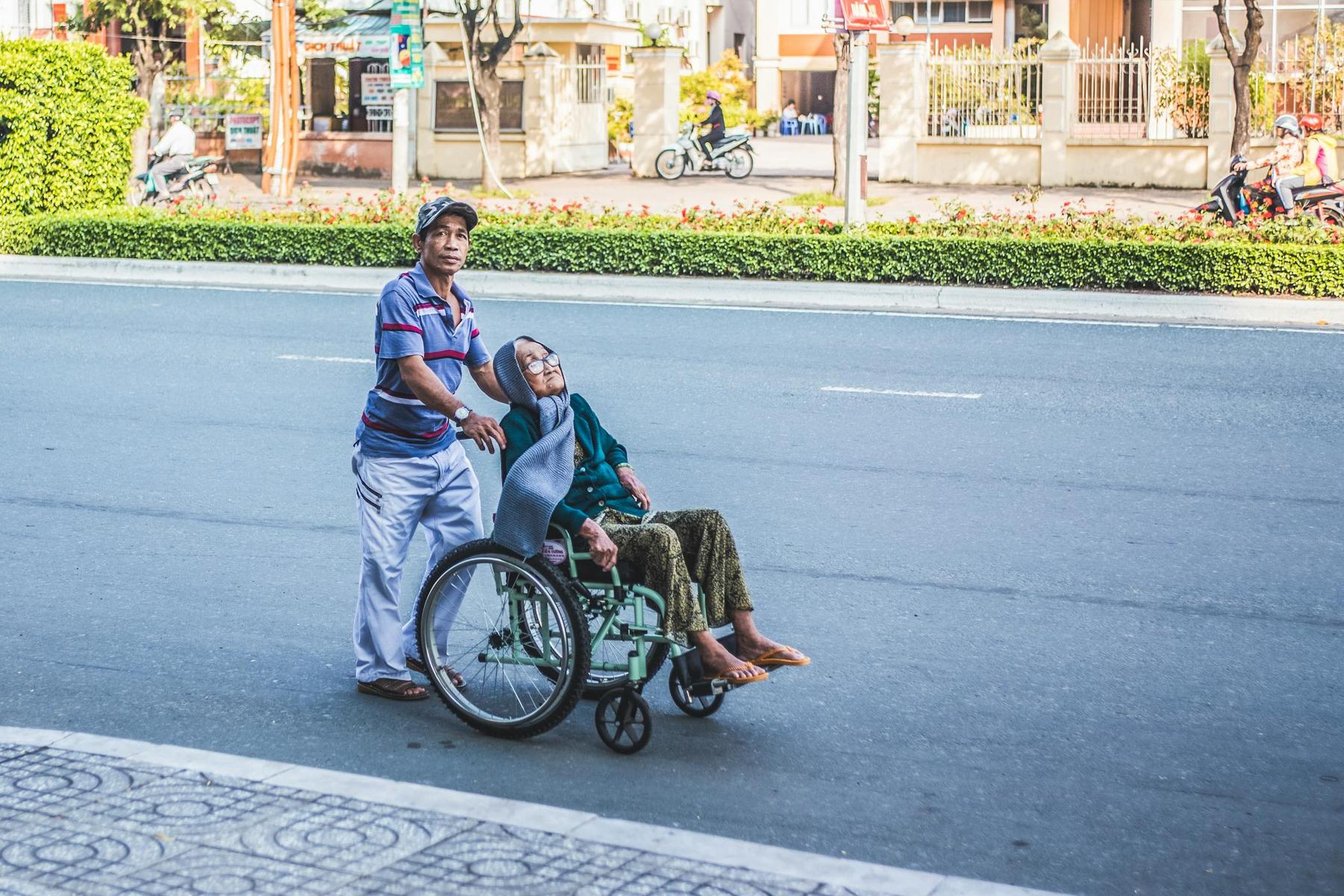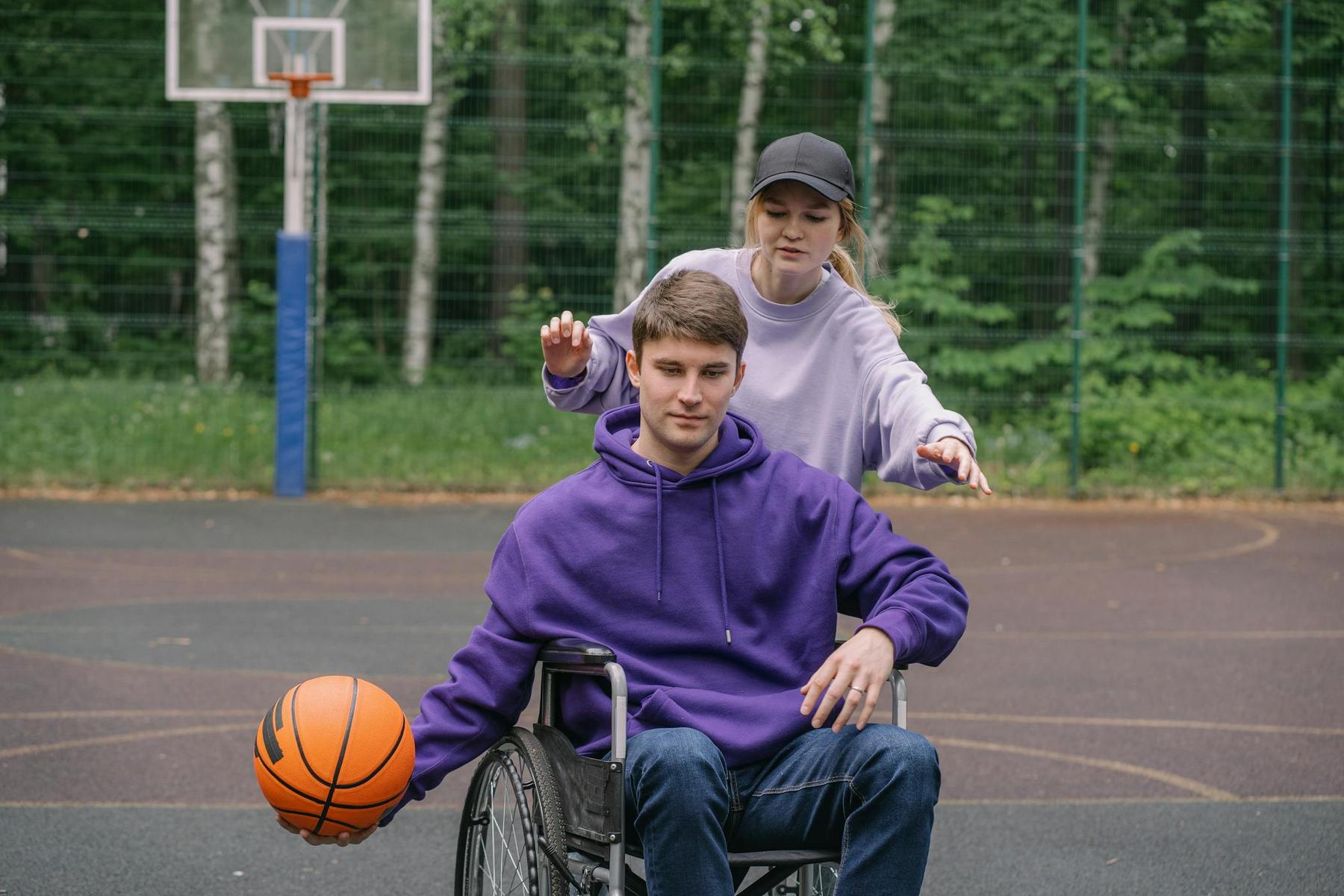When someone you love requires round-the-clock support due to complex disability needs, the search for compassionate, reliable care can feel overwhelming. You’re not just looking for assistance—you’re seeking peace of mind, knowing that your family member receives expert care whilst maintaining dignity, independence, and quality of life. For families across Brisbane and Cairns, understanding high-intensity support services and 24-hour care options marks the first step toward finding solutions that truly work.
High-intensity support services represent a lifeline for thousands of Queenslanders living with profound disabilities, complex medical conditions, or behavioural support needs. These comprehensive care programmes go far beyond basic assistance, providing specialised medical support, constant monitoring, and person-centred care that adapts to each individual’s unique circumstances. With over 90,000 Queenslanders accessing NDIS supports and approximately $4 billion invested annually into Queensland’s disability sector, the landscape of available services continues to evolve—but navigating this system requires knowledge, patience, and expert guidance.
What Exactly Are High-Intensity Support Services?
High-intensity support services are specialised disability care programmes designed specifically for individuals whose daily needs extend beyond standard personal assistance. These services cater to people requiring substantial help with everyday activities due to profound disability, complex medical conditions, or challenging behaviours.
Unlike standard support services, high-intensity care encompasses a broad spectrum of clinical and therapeutic interventions. This includes complex bowel and wound care, enteral feeding support for those with dysphagia (swallowing difficulties), ventilator and tracheostomy management, urinary catheter assistance, epilepsy and seizure management, and advanced behaviour support strategies. Each service component requires specialised training, often delivered by workers holding Certificate III or IV qualifications in Individual Support (Disability), and in some cases, nursing credentials for medical procedures.
The Australian Bureau of Statistics reports that 5.5 million Australians—21.4% of the population—live with disability, with 7.9% experiencing profound or severe limitations. Among these individuals, 60.5% require assistance with at least one activity of daily life. Yet concerningly, only 49.9% had their needs fully met in 2022, down from 59.7% in 2018, highlighting a growing gap between demand and service availability.
What distinguishes high-intensity support is the level of active assistance required. Participants typically need supervision or direct help for most waking hours, and often throughout the night. This continuous care model ensures safety, manages complex health conditions effectively, and provides the consistency essential for individuals with profound disabilities to thrive within their communities.
Why Would Someone Need 24-Hour Care Support in Brisbane?
The decision to seek 24-hour care support rarely comes lightly. Families and individuals consider this level of assistance when safety, health management, or quality of life cannot be adequately maintained through less intensive supports.
Several circumstances commonly necessitate around-the-clock care. Complex medical conditions requiring constant monitoring—such as severe epilepsy with frequent seizures, respiratory conditions requiring ventilator support, or diabetes requiring regular blood glucose monitoring and insulin administration—demand continuous professional oversight. Without this vigilance, medical emergencies can escalate rapidly.
Profound physical disabilities limiting mobility, self-care abilities, and transfers often require immediate assistance at unpredictable intervals throughout day and night. A person may need repositioning to prevent pressure injuries, assistance with toileting, or support with eating and drinking at any hour.
Challenging behaviours associated with intellectual disability, acquired brain injury, or psychosocial conditions sometimes pose safety risks to the individual or others. Trained support workers provide consistent behaviour management strategies, environmental modifications, and crisis intervention when needed, reducing hospitalisation risks and promoting community inclusion.
Degenerative conditions where functional abilities decline over time may transition from moderate support needs to high-intensity requirements. Early planning for this progression ensures continuity of care and prevents crisis-driven decisions during already stressful periods.
Queensland is home to 4,089 SDA-funded participants, with 3,933 Specialist Disability Accommodation dwellings available across the state, including 2,389 High Physical Support dwellings—the largest category. This infrastructure specifically supports individuals with higher support needs who benefit from purpose-designed accommodation alongside intensive personal care.
How Do 24-Hour Care Models Actually Work in Practice?
Understanding how 24-hour care operates demystifies the process and helps families envision what daily life might look like with comprehensive support in place.
Modern 24-hour care in Brisbane incorporates multiple service delivery models, each designed to meet different levels and patterns of need:
| Service Type | Response Time | Coverage Hours | Typical Applications |
|---|---|---|---|
| Active Overnight Support | Immediate | 6 PM – 6 AM | Medication monitoring, repositioning, toileting assistance, active care provision |
| Sleepover Support | On-call as needed | Overnight | Minimal intervention (up to 2 hours), support worker sleeps on-site |
| High-Intensity Daily Care | Continuous | 24/7 | Complex medical/behavioural needs requiring constant supervision |
| Mobile Response Services | 5-30 minutes | 24/7 | Medical emergencies, equipment failures, backup support |
Active overnight support involves a fully awake support worker present throughout night hours, providing hands-on assistance exceeding two hours per shift. This model suits individuals requiring regular medication administration, frequent repositioning to prevent pressure injuries, seizure monitoring, or continuous behaviour support. Support workers remain alert and engaged, documenting interventions and responding immediately to emerging needs.
Sleepover support represents a less intensive overnight option where the support worker sleeps on-site but remains available for assistance as needed, provided total hands-on support doesn’t exceed two hours per night. According to current NDIS pricing, sleepover support costs $286.56 per night, considerably less than hourly active overnight rates.
High-intensity daily care combines daytime and overnight support into a seamless 24/7 service. Support workers rotate in shifts—typically 8 or 12-hour blocks—ensuring fresh, alert staff whilst maintaining consistency through detailed handover procedures. Care plans document every aspect of support delivery, from medication schedules to preferred communication methods, ensuring each team member provides person-centred care aligned with the individual’s goals and preferences.
Many Brisbane providers now incorporate technology-enabled support, including remote monitoring systems for participant safety, emergency call systems with advanced alert capabilities, and digital care coordination platforms enabling proactive interventions and family communication.
What Do High-Intensity Support Services Cost Under the NDIS?
Financial considerations understandably weigh heavily when families explore 24-hour care options. The NDIS funding framework provides substantial support for eligible participants, though understanding pricing structures and plan budgets requires careful attention.
According to the NDIS Price Guide 2024-25, high-intensity support rates vary significantly based on timing:
- Weekday Daytime: $73.09 per hour
- Weekday Evening: $80.53 per hour
- Weekday Night: $82.02 per hour
- Saturday: $102.86 per hour
- Sunday: $132.62 per hour
- Public Holiday: $162.38 per hour
For participants receiving Supported Independent Living (SIL)-accommodation-linked support funding—average annual packages total $327,900 nationally—reflecting the substantial funding allocated to individuals with complex, ongoing support needs. However, only 26,623 participants nationally access SIL, representing just 5.13% of NDIS participants whilst accounting for 32.63% of total NDIS supports.
Real-world costs for 24-hour care can range from $40,000 to $60,000 monthly or more for individuals requiring continuous high-intensity support, depending on specific needs, support hours, and service delivery models. The average adult NDIS plan totals approximately $65,700 annually, though participants with profound disabilities or complex medical conditions typically receive substantially larger plans reflecting their higher support requirements.
Concerningly, research indicates that approximately 21% of NDIS budgets remain unutilised, suggesting barriers exist in accessing or implementing available supports despite adequate funding. This gap often stems from limited provider availability, complex approval processes, or difficulties navigating NDIS systems without expert support coordination.
For families concerned about funding adequacy, engaging an experienced support coordinator early in the planning process proves invaluable. These professionals help articulate support needs clearly in NDIS applications, gather evidence from treating health professionals, and advocate for appropriate funding levels reflecting true support requirements.
How Can Families Access High-Intensity Supports in Brisbane and Cairns?
Accessing high-intensity support services begins with understanding NDIS eligibility and progresses through planning, provider selection, and ongoing service coordination. Whilst the journey involves multiple steps, expert guidance makes navigation considerably smoother.
NDIS eligibility requires meeting age, residence, and disability criteria. Applicants must be under 65 years (or under 50 for Aboriginal and Torres Strait Islander peoples in some programmes), be an Australian citizen or hold a Protected Special Category or Permanent visa, and have a permanent and significant disability substantially reducing participation in everyday activities. For high-intensity supports, comprehensive medical evidence documenting complex needs proves essential.
Queensland offers specific support through the Assessment and Referral Team (ART), providing one-on-one assistance to at-risk children and young people aged 7-25 years, particularly supporting First Nations, LGBTQIA+, and culturally/linguistically diverse individuals accessing NDIS supports.
The planning conversation represents your opportunity to describe daily life, support needs, and personal goals clearly. Documenting typical days—including overnight requirements, medical procedures, behavioural support needs, and assistance required across all activities—helps planners understand the full scope of necessary supports. Reports from treating specialists, therapists, and current support providers strengthen applications significantly.
Once funded, selecting the right provider requires researching options, asking detailed questions about staff qualifications, service models, emergency protocols, and organisational values. Look for providers employing rather than contracting support workers, as employment models typically ensure better consistency, training, and accountability. Verify NDIS registration, Quality and Safeguards Commission compliance, and ask about staff-to-participant ratios and overnight support approaches.
Support coordination services themselves constitute an NDIS-funded support category helping participants implement their plans effectively. Support coordinators assist with provider searches, service agreements, crisis management, and plan reviews. For complex plans involving high-intensity supports, specialist support coordination provides enhanced assistance navigating intricate service systems and resolving emerging challenges.
Many Brisbane and Cairns participants report that finding a provider who genuinely understands their needs, communicates responsively, and demonstrates flexibility when circumstances change makes all the difference between adequate care and truly exceptional support enabling meaningful lives.
What Qualifications Should Support Workers Possess?
The quality of high-intensity support hinges entirely on workforce competence, training, and ongoing professional development. Understanding minimum qualifications and best-practice standards helps families assess provider capabilities and advocate for appropriate skill levels.
Minimum entry requirements for all disability support workers include current First Aid and CPR certificates, Working with Children Checks (where relevant), valid driver’s licences, NDIS Worker Screening Checks for risk-assessed roles, and fundamental understanding of NDIS principles and person-centred practice.
For high-intensity support roles, Certificate III in Individual Support (Disability) represents the nationally recognised entry-level qualification, covering core competencies in personal care, communication, dignity of risk, and individualised support. Certificate IV in Disability Support provides advanced training for senior support workers and team leaders, encompassing complex care needs, behaviour support, and coordination skills.
Specialised clinical training becomes essential when high-intensity supports involve medical procedures. Enteral feeding, catheter care, ventilator support, wound management, and medication administration require specific competencies often delivered through Registered Training Organisations or clinical mentorship programmes. Some procedures legally require nursing qualifications, though support workers can assist under appropriate delegation frameworks.
The NDIS Practice Standards mandate that workers must be competent in their roles, holding relevant qualifications and demonstrated expertise. Quality providers invest substantially in ongoing professional development, with some states requiring minimum 10 hours of continuing professional development annually for registered disability workers.
Beyond technical skills, the human qualities support workers bring—compassion, patience, adaptability, cultural competence, and genuine respect for people with disability—ultimately determine whether care feels transactional or transformative. The best providers recruit not just for qualifications but for values alignment, emotional intelligence, and commitment to empowering participants toward their personal goals.
Moving Forward: Creating Lives Worth Living Through Comprehensive Support
High-intensity support services and 24-hour care options represent far more than medical assistance or safety monitoring. These supports, when delivered with expertise and compassion, become the foundation enabling people with profound disabilities to live with dignity, pursue meaningful goals, and participate fully in community life.
Research demonstrates that 39.4% of people with disability under 65 years report needing more formal assistance than they currently receive—a figure that has increased from 37.5% in 2018. This growing unmet need underscores the critical importance of accessible, high-quality support services across Brisbane, Cairns, and throughout Queensland.
For families navigating these decisions, remember that seeking comprehensive support isn’t an admission of inability—it’s a recognition that everyone deserves assistance matching their needs, and that professional support enables both individuals with disability and their families to thrive. Whether you’re exploring options for the first time or seeking to enhance existing supports, thorough research, clear communication with NDIS planners, and partnership with experienced providers makes all the difference.
Have questions? Need support? Reach out to us here at Advanced Disability Management. Our experienced team in Brisbane and Cairns understands the complexities of high-intensity support and 24-hour care, and we’re here to help you navigate your options with compassion, expertise, and genuine commitment to your family’s wellbeing.



